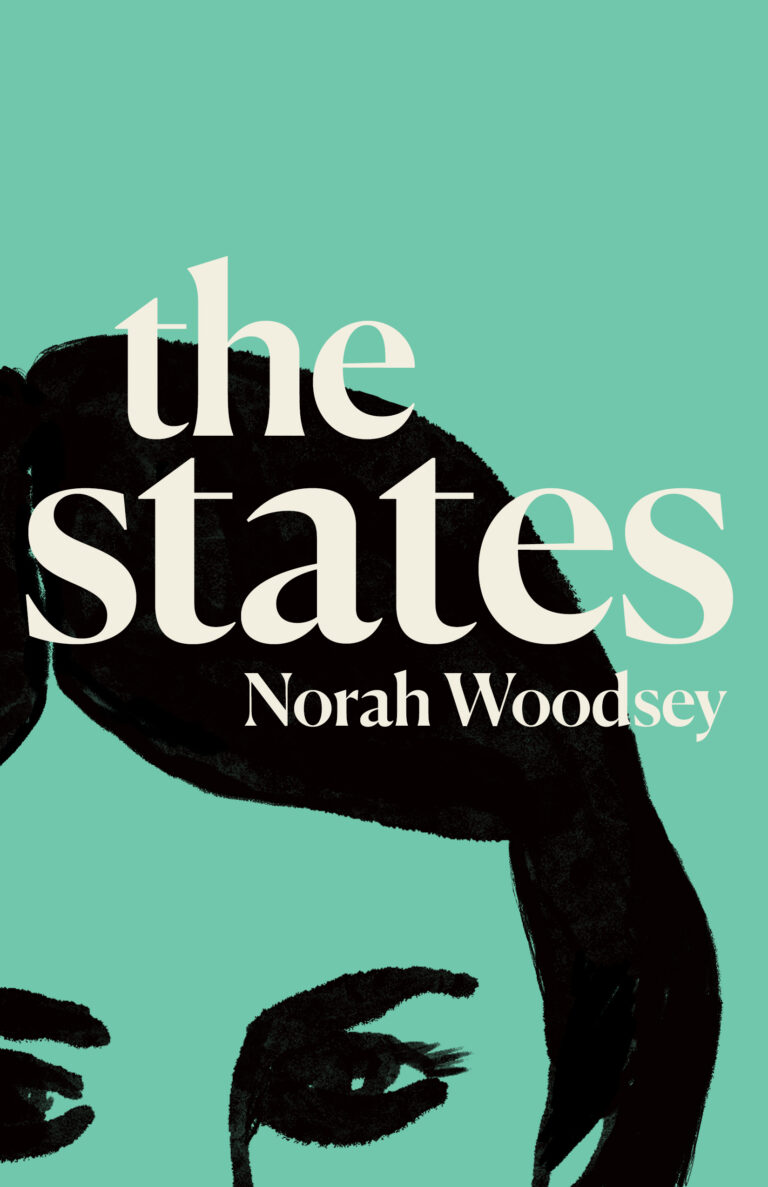Any Janeite will recognize Norah Woodsey’s THE STATES by the first chapter as a modern retelling of Miss Austen’s Persuasion. Sir Walter Elliott, Baronet, becomes Patrick Sullivan, CEO of a cosmetics company—but he retains the ego that takes up all available space inside his skull, leaving none for intelligence or real affection. His eldest daughter Elizabeth becomes Gisele, a shallow influencer and jet-setter who’s a carbon-copy of her father. The youngest, Mary, becomes Alexandra, melodramatically overwhelmed by the demands of marriage and family. The heroine, quiet, selfless Anne Elliott, becomes Matilda, the middle child who holds her mother’s shares in the company and takes her mother’s place as the unappreciated family caretaker and voice of rational sense. In the meantime, she also yearns for a lost love she was forced to abandon for the sake of family duty.
Woodsey pays tribute to the original by naming the AI “family assistant” (designed by Matilda’s late mother) Russell, after Persuasion’s Lady Russell. But while the foundation of the story is indeed based on that great novel, this author has really thought about the necessary changes a modern context implies for her heroine’s life. Matilda has resources Anne does not—technical skills and a job of her own—so her passivity is a choice, a choice the lucid dreaming technology both enables and undercuts by showing her a fantasy world she can choose to either hide in or make real for herself. William Elliot’s role in Persuasion is to give Anne a chance at courtship again, as well as give Wentworth the jealousy he needs to drive him to speak up. William’s equivalent, Jude Mills, does this too, but he also gives Matilda a clearer view of—as well as the drive to speak up and escape from—her selfish and backstabbing family. It is interesting that, while Anne moves out of her family’s orbit and into a new, exciting world of ships and exploration (and alas, sometimes war), Matilda goes home to her maternal roots in Ireland to take care of her grandmother (who is at least more receptive and appreciative of her care than her father and sisters) and a man whose job is literally to nurture and nourish others (who cares for her, as well).
Woodsey clearly shows how a modern, uprooted lifestyle and technological escapes can be every bit as artificial and damaging to real health and happiness as Anne’s society’s restrictive rules. In both cases, the heroines find themselves happiest in a world centered around authentic care, love, and mutual support. Some things never change.
Norah Woodsey’s THE STATES is a clever answer to the question, “What if Anne Elliot had a modern woman’s options—social, financial, and technological?” It also does its best to explore both the potential empowerment and potential traps of such a situation while maintaining the tender intensity of the love story at its heart.
~Catherine Langrehr for IndieReader


